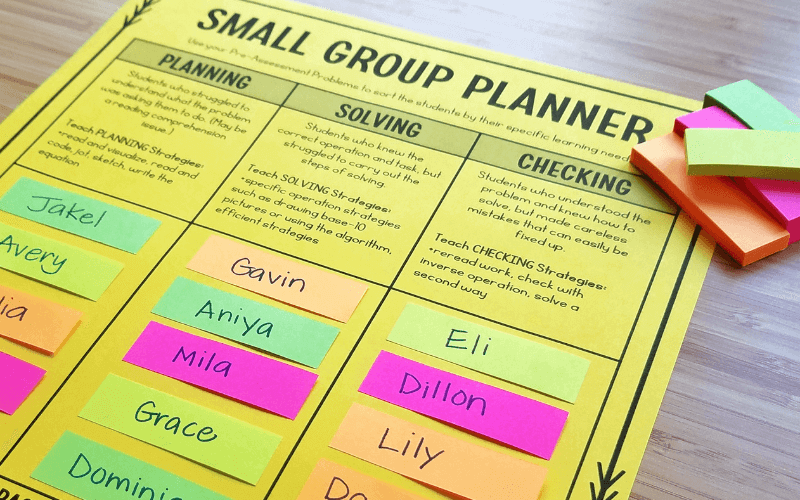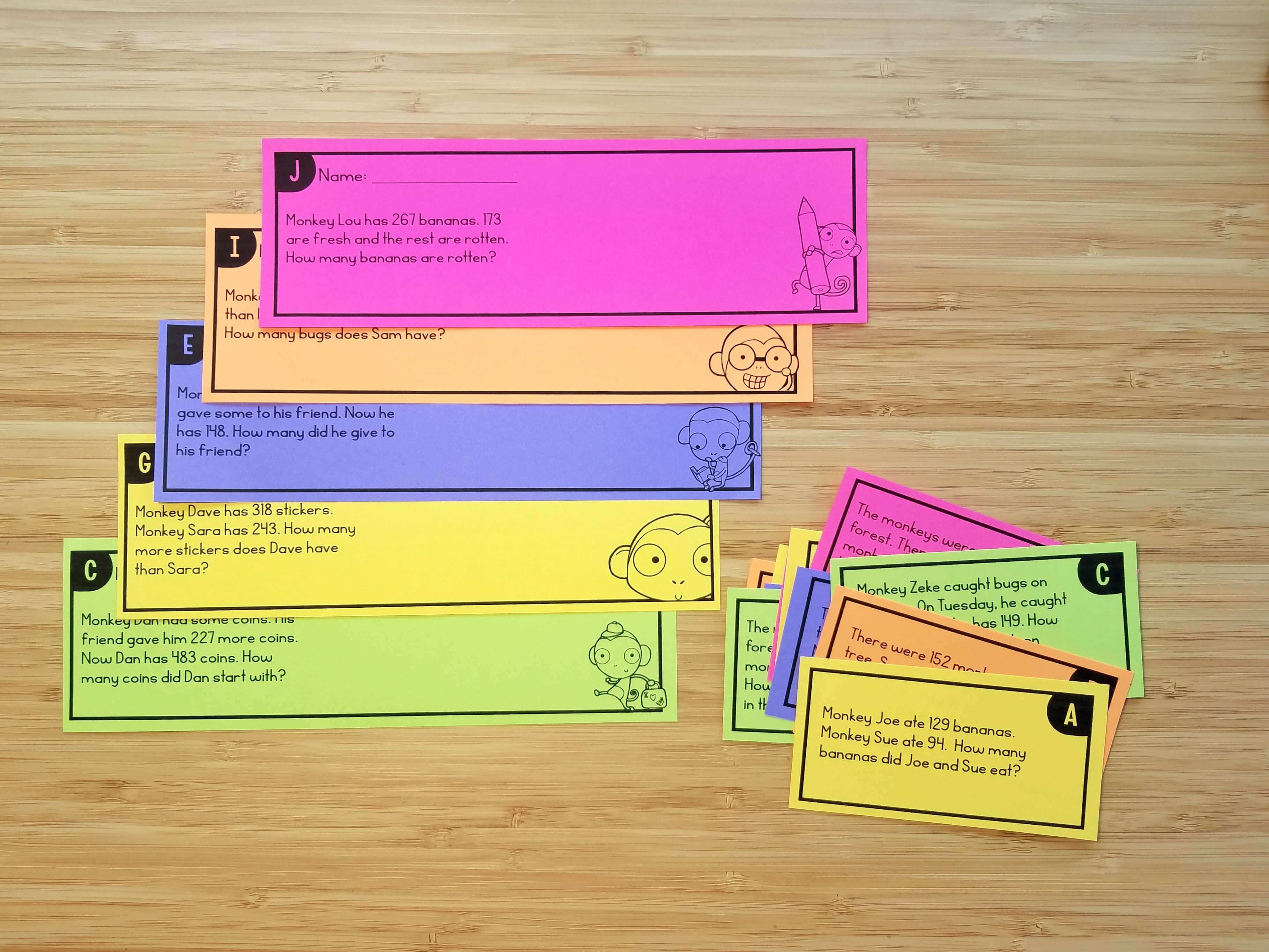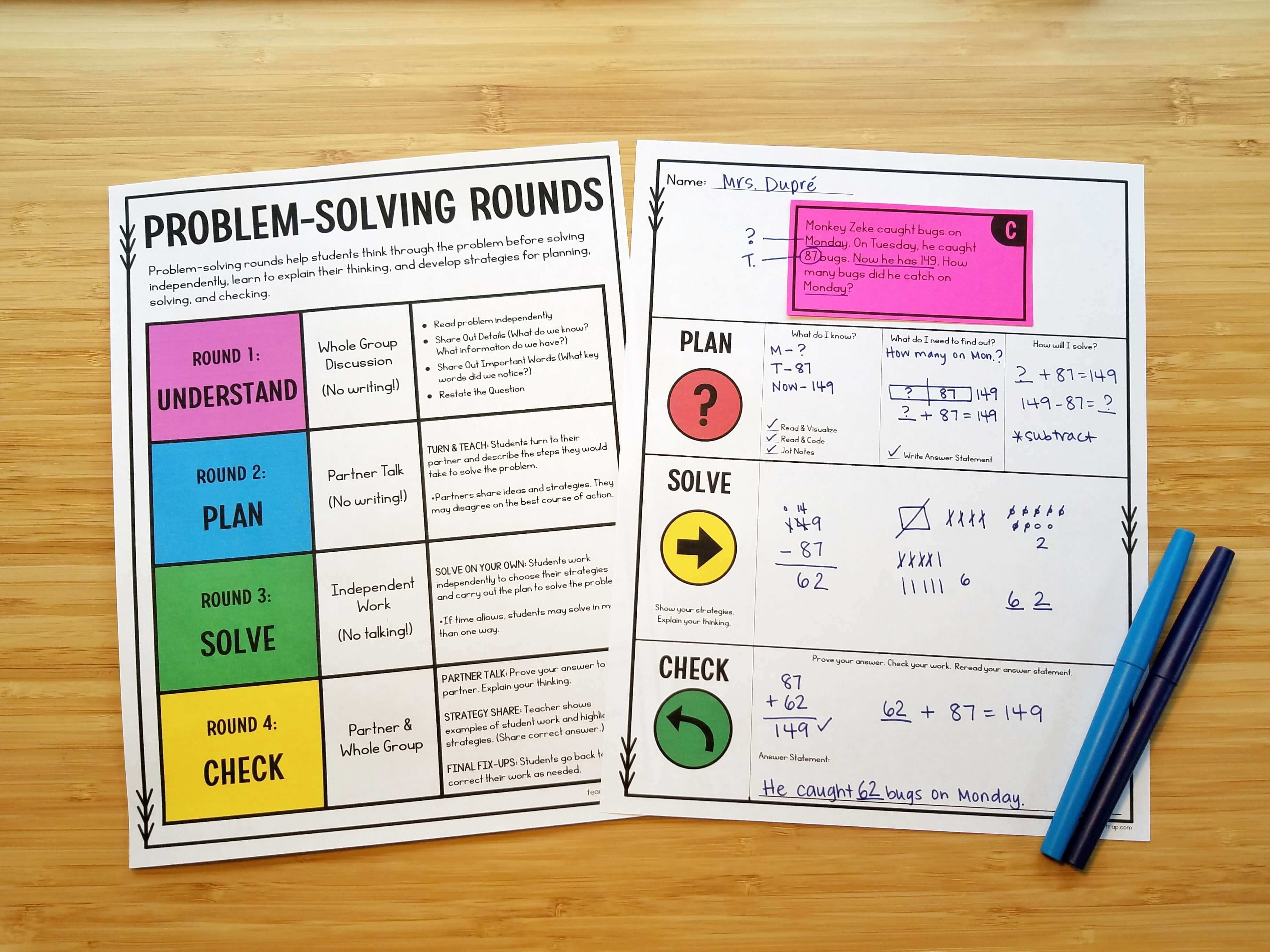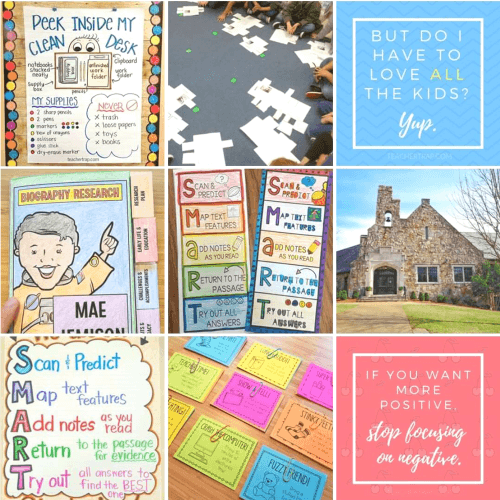Many teachers have already discovered the power of guided math groups. There is nothing like targeted, personalized instruction in a small group setting! This approach works wonders when it comes to helping students master word problems.
Today, I want to give you a FREE small group planner for teaching word problems, plus handy tips for providing powerful instruction.
How to Use the Small Group Planner
Just like in reading, we want to form our small groups around the specific instructional needs of the child, not just their ‘level.’ When it comes to word problems, I find there are 3 areas of potential strengths or weaknesses that make all the difference. They are Planning, Solving, and Checking Strategies.
Planning: Some students struggle with understanding the actual problem. The issue may come down to reading comprehension, bad habits of rushing, or misconceptions about key words in word problems.
You can find these students by looking for kids who didn’t know what to do with the numbers. They may have added correctly, but the problem required subtraction, or maybe they gave up altogether because they weren’t sure how to begin.
These students need strategies for making sense of the problem, modeling the situation, and selecting the operation.
Solving: Other students may understand the problem, but struggle with the actual computation of numbers. They know exactly what to do, but have trouble carrying it out.
Look for students who were able to model the problem and knew the correct operation, but seemed to falter when it came to the task. These students may need more support in developing efficient strategies for addition, subtraction, multiplication, or division.
Checking: There are always some students who knew what to do, carried out the process correctly, but then made a silly mistake that led to an incorrect answer.
Look for simple errors like forgetting to add a carried ten or rewriting the numbers from the problem incorrectly. These students need to develop better checking strategies so that they can catch their errors.
*GRAB YOUR FREE PLANNER in my Word Problem Solving Bundle Sampler Pack!
Use Quick Formative Assessments
Look for opportunities to use formative assessments to guide your instruction and small groups. I like to pre-assess at the beginning of a unit and then gather ongoing information with simple formative assessments. You can use Exit Tickets or even just a problem in their Math Journal at the end of the lesson.
The Exit Tickets or Math Journal problems are not used as a grade, but simply as additional information about my students’ progress and needs.
Let’s say we’re working on addition and subtraction word problems. After our lesson on Monday, I might pass out a challenging addition word problem on an Exit Ticket. I’ll collect the tickets and sort them into the categories on the Small Group Lesson Planner. My goal will be to determine who needs support with Planning Strategies, who needs help with Solving Strategies, and who needs more practice with Checking Strategies. There may also be some students who complete the problem perfectly and are ready for more challenge.
I’ll use this information to plan my instruction for the following day. I might notice that a majority of my class is struggling with Planning or Solving strategies, so I’ll use a whole group lesson to reteach in just that area. Or, I might see that it’s time to give some targeted instruction in small groups.
Each day, I can use an Exit Ticket or a problem in the students’ Math Journals to learn more about what type of instruction is needed for which students.
Putting It All Together
Word problems are challenging for students, but teaching the Plan, Solve, and Check habits can make all the difference. Not only do I target my small group instruction to Planning, Solving, and Checking Strategies, but those categories are also the basis for my Problem Solving Rounds and the Word Problem Thinking Mat.
I’d love to hear from you. Have you tried Guided Math groups for teaching word problem strategies? What worked and what questions do you have?











